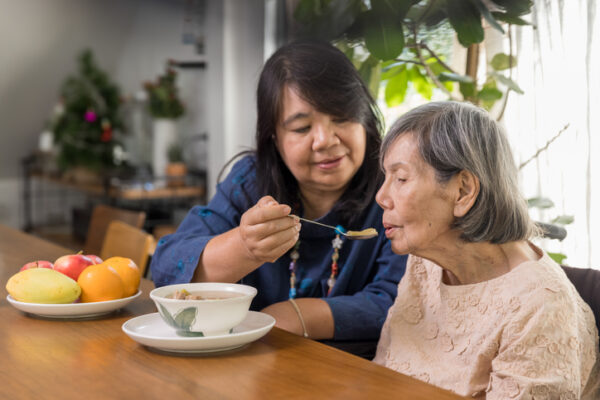A recent jobs report showed that the unemployment rate dropped significantly to 4.8% during the last 18-months. That is good news for many Americans. But a new reality has also become apparent – an unmet need for care workers.
Traditionally most caregivers for children and the elderly have been women, and they continue to shoulder the lion’s share of that responsibility today. Yet with social and demographic changes, the new reality is that other sources of care are increasingly necessary to assist working adults meet their multiple responsibilities.
Recruiting adequate numbers of home care workers is becoming increasingly difficult —we are 2.3 million short based on a 2021 study of the Office of the Assistant Secretary for Planning and Evaluation.
To address this issue, Congress is currently debating legislation to extend home health care benefits. The Build Back Better framework is designed to permanently improve affordable care by improving Medicaid coverage for home care services for seniors and people with disabilities, while supporting the well-trained professionals who supply this care. In addition, premiums will be reducing for home health care workers.
These are all great but far more important is long term care policy that benefits middle class and working families, the very group most likely to fend for themselves. Washington state gives one example of a publicly funded long-term care effort but ultimately, only federal policy will suffice for the more than 78 million baby boomers now entering old age and the millennial cohort following behind.
There is also the issue of burnout. Many family caregivers work long hours and need time off, but often go without it. The pandemic has also had a deep and profound impact on people’s psyches and caregiver resilience. The adult day care movement is one example that could help to reduce caregiver stress and meet their occupational needs. Perhaps more importantly, research shows that adult day centers fills a gap to lighten a potentially serious caregiving burden.
These issues particularly affect the Latino population. A longitudinal study we did of Mexican-American care recipients who are in their 90s shows their caregivers receive less help from non-Latinos in caregiving. Consequently, the impact on caregivers–family, friends, neighbors– is immeasurably harder if we do not expand support and draw on community-based adult day -health centers and all others sources of support.
In Texas, Rider 157, the DHHS Community Attendant Workforce Development Plan, includes specific strategies for recruiting, retaining, and ensuring adequate access to community attendants and the services of personal care for older adults and people with disabilities in Medicaid and non-Medicaid programs. In addition to this enhancement program, Medicaid State Plans offer adult day care as a benefit. In 2021, only 15 states covered adult day health care services with their Medicaid State Plan.
If any issue can be non-partisan or bi-partisan, surely it can be a non-political creation of home and community-based infrastructure for all who will, in due time, be saddled with the care of an aging relative or a disabled child. Our state lawmakers should pass legislation that will develop and implement strategies for integrating housing plus home and community-based programs for low-income seniors and their caregivers.
And federal lawmakers should pass portions of the Build Back Better legislation that will promote a stable home and community long-term care infrastructure, as most programs are optional for states. Making permanent matching federal Medicaid funds available would make up for years of underinvestment in community care for those who need it most.
These would lead to modest improvements, such as greater Medicaid flexibility to fund caregiving and home-based care. Legislative understanding and support are growing in the Congress and in state capitals for these important improvements, but much more is needed including a universal long term care policy such as many nations— the European Union, Taiwan, Korea and Japan— now provide. We can do better here in the U.S.
Jacqueline L. Angel is the Wilbur J. Cohen professor of health and social policy and professor of sociology at The University of Texas at Austin.
Fernando M. Torres-Gil is a professor and director of the Center for Policy Research on Aging at the University of California, Los Angeles
A version of this op-ed appeared in The Hill.




